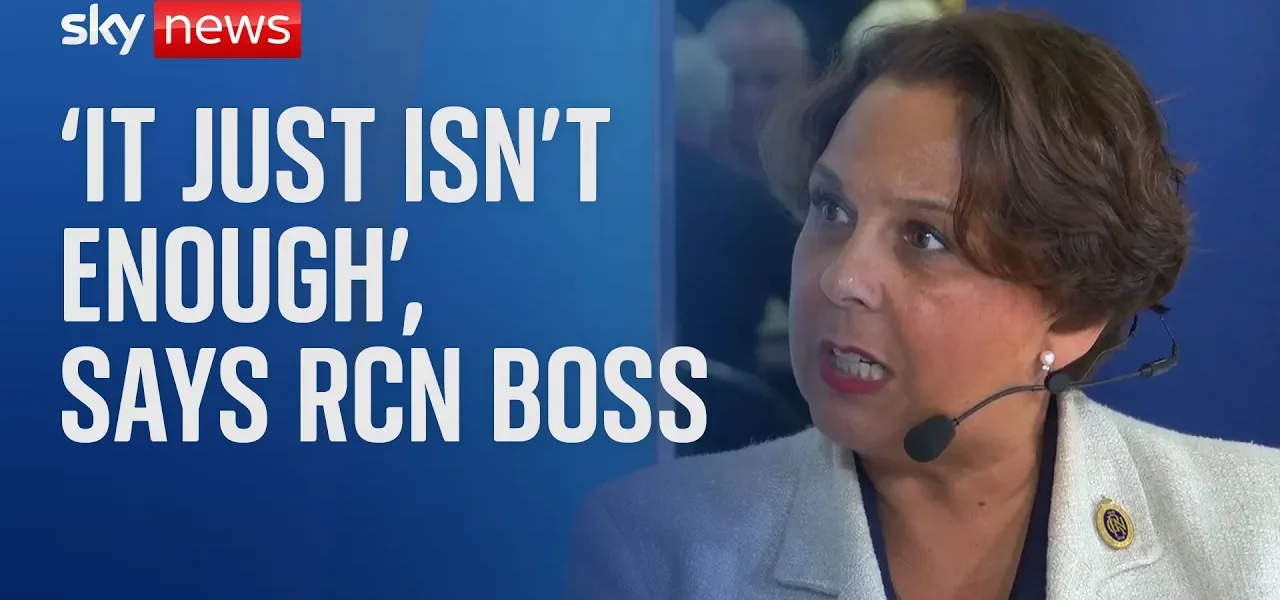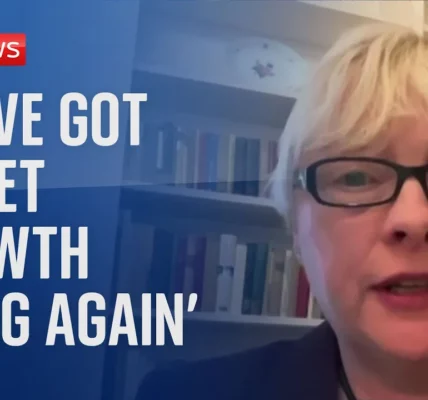Nurses Reject Pay Offer: An Interview with Professor Nicola Ranger

This article provides a comprehensive overview of the recent interview with Professor Nicola Ranger, where she addresses the concerns regarding nurses’ pay, the implications for the NHS, and the potential for strike action. The insights shared shed light on the challenges faced by nursing professionals in the UK healthcare system.
Introduction
The nursing profession in the UK is at a critical juncture, as highlighted in a recent interview with Professor Nicola Ranger, the General Secretary and Chief Executive of the Royal College of Nursing (RCN). With over 145,000 responses from nursing staff regarding pay issues, the sentiment is clear: the current compensation does not meet the challenges faced by nurses and the healthcare system as a whole. This article delves into the key points raised during the interview, exploring the implications of the rejected pay offer and the broader context of the NHS.
The Pay Rejection and Its Implications
In the interview, Professor Ranger discussed the overwhelming response from nursing staff regarding their pay, indicating that the current offer is insufficient. This rejection is not merely about numbers; it reflects the frustrations and realities of working in a strained healthcare system.
Record Response from Nursing Staff
The RCN received feedback from over 145,000 nurses, showcasing a significant level of engagement and concern. The following points summarize the key issues raised:
- Inadequate compensation in light of increasing responsibilities.
- Comparison with junior doctors who achieved substantial pay increases through extensive negotiations.
- The urgent need for systemic changes to improve working conditions and patient care.
Impact on Patient Care
Professor Ranger highlighted that the dissatisfaction among nurses correlates directly with the quality of care provided to patients. With vacancies and staff shortages, the ability to deliver adequate care is compromised, leading to:
- Long waiting times for patients.
- Increased stress and burnout among nursing staff.
- Overall decline in patient satisfaction and outcomes.
The Potential for Strike Action
While the prospect of strike action is always considered a last resort, it remains a possibility if negotiations on pay and working conditions do not progress positively. Professor Ranger emphasized that the primary goal is to foster dialogue rather than escalate tensions.
Desire for Dialogue
Instead of threatening strike action, the RCN is prioritizing constructive discussions with the government. Key points include:
- The importance of being heard and recognized as part of the solution.
- A call for immediate negotiations to address the structural problems within the NHS.
- A commitment to improving conditions for both nursing staff and patients.
Challenges Faced by the NHS
Professor Ranger pointed out the alarming state of the NHS, mentioning:
- The lowest levels of patient satisfaction in history.
- Structural issues that hinder effective care delivery.
- The urgent need for recruitment and retention strategies for nursing staff.
Government’s Role and Future Outlook
The interview also touched upon the government’s performance and its impact on the NHS. Professor Ranger acknowledged the complexities of the current political climate and the need for strong leadership in addressing the crisis in healthcare.
Assessment of Government Actions
Many union leaders, including Professor Ranger, have expressed frustration with what they perceive as a return to austerity measures. Key observations included:
- A lack of commitment to public sector workers’ needs.
- Concerns about the government’s understanding of the realities faced by healthcare professionals.
- The necessity for a collaborative approach to reform the NHS.
Conclusion
In conclusion, the insights shared by Professor Nicola Ranger highlight the urgent need for change within the nursing profession and the NHS. The rejection of the current pay offer reflects deeper issues related to working conditions and patient care. The RCN’s call for dialogue emphasizes the desire to be part of the solution rather than resorting to strike action. As the situation evolves, it is crucial for the government and nursing leaders to engage in meaningful discussions to foster improvements in the healthcare system. To learn more about the challenges facing the NHS or to support nursing initiatives, visit our related articles.
“`




